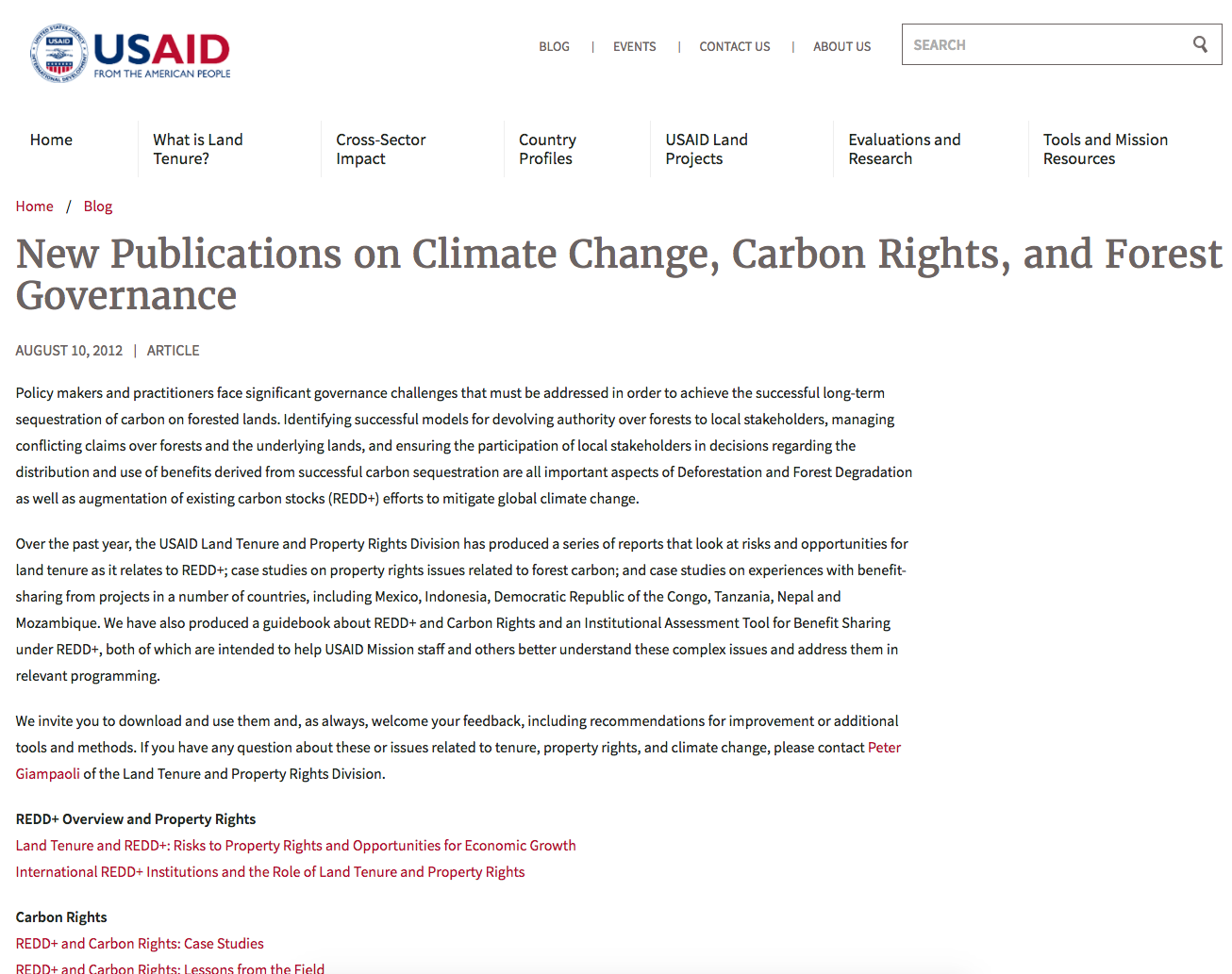Location
About Us
We envision a world in which land governance systems, both formal and informal, are effective, accessible, and responsive for all. This is possible when land tenure and property rights are recognized as critical development issues and when the United States Government and its development partners demonstrate consistent attention and a firm commitment to supporting coordinated policies and programs that clarify and strengthen the land tenure and property rights of all members of society, enabling broad-based economic growth, gender equality, reduced incidence of conflicts, enhanced food security, improved resilience to climate change, and effective natural resource management.
Mission Statement
The USAID Land Tenure and Resource Management (LTRM) Office will lead the United States Government to realize international efforts—in accordance with the U.S. Government’s Land Governance Policy—to clarify and strengthen the land tenure and property rights of all members of society—individuals, groups and legal entities, including those individuals and groups that are often marginalized, and the LTRM Office will help ensure that land governance systems are effective, accessible, and responsive. We will achieve this by testing innovative models for securing land tenure and property rights and disseminating best practice as it relates to securing land rights and improving resource governance within the USG and our development partners.
Members:
Resources
Displaying 236 - 240 of 440Momentum Gathers Behind Implementing Guidelines
The global community continues to focus on Voluntary Guidelines for Governance of Tenure of Land, Fisheries and Forests, otherwise known as the VGs. A two day meeting, held in Rome July 18 and 19, attended by more than forty participants from UN member countries, multilateral and bilateral organizations, and civil society focused on developing strategies for implementation of the Guidelines.
Climate Change, Carbon Rights, and Forest Governance
Policy makers and practitioners face significant governance challenges that must be addressed in order to achieve the successful long-term sequestration of carbon on forested lands.
Land and Conflict Are Linked in Cote d'Ivoire
Land tenure in Cote d’Ivoire is closely linked with ethnic conflict, power and economics. Beginning around the 1960s, President Houphouet-Boigny instituted policies that actively encouraged the clearing of new areas of land, the importation of labor and the establishment of laborers as agricultural settlers. This has been the cause of frequent conflicts, relating both to land rights and the ways in which different communities gain access to resources.
Project in Ghana Offers Some Creative Approaches to Property Rights
Working with customary legal systems to improve or ensure land tenure security or protecting property rights for people living under those systems is a substantial challenge. Much, though by no means all, development work focuses on improving the formal land administration systems – mapping, building cadastres, changing de jure laws, etc. But here is an example from Ghana of how to work with and within customary systems to create a more stable institutional environment – one that promotes investment and reduces conflict.
Recommended Reading
Here’s a new book that addresses one of the most interesting puzzles in the land tenure field: how best to formalize customary or informal rights. With chapters by some of the leading lights in land tenure work (John Bruce, Lorenzo Cotula, and Andre Hoekema) it should be a good addition to the library.



